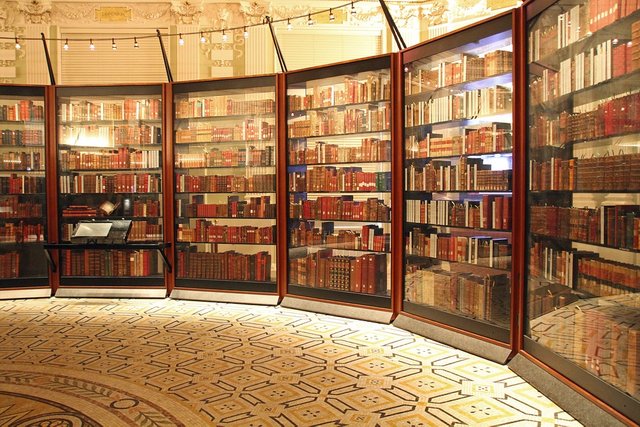
With all the energy going into crypto and blockchain, it's easy to lose your head and think everything belongs in a blockchain or everything should be monetized via a decentralized crypto currency. But lets look at this realistically.
Let's say someone decides that the Library of Congress should be fully digitized and put on a blockchain. According to this source http://www.lesk.com/mlesk/ksg97/ksg.html, the Library of Congress (LOC) has about 3 petabytes of data. You can argue about the actual number but it's irrelevant to the point I'm trying to make. The Bitcoin network posts up a block every ten minutes and currently average block size is around 1 MB. Again, you could argue the exact number, but that doesn't change the argument much. Some simple math with these numbers tells us that the LOC needs 3,000,000 blocks (1MBx1000= 1 TB, 1TBx1000=1PB, 1000x1000x3). At 10 minutes per block it would take 57 years just to upload the collection. And a lot of people would be angry while they waited for their transactions to be recorded.
Yeah, yeah. We all know that there are scalability issues with blockchains. Especially the more decentralized ones. But that's not the real issue here.
This silly little exercise in arithmetic is telling us something else - namely, not everything actually belongs in a blockchain. The strongest use case for a blockchain is anything that requires an immutable, sequential, verified record of a data exchange. That exchange is the "transaction", whether it is currency or some other digital asset. The smart reader will notice that decentralization and trustless validation aren't requirements for a useful blockchain. These two attributes are critically important features of Bitcoin and other crypto currencies and essential to their functioning. But that is a specific use case. As a data structure, blockchain is not intrinsically decentralized and there is no requirement that a useful blockchain solve the Byzantine General problem, use Zero Knowledge proofs or much of the other computer magic that glues Bitcoin together into a stable digital currency.
So what's my point? Let's go back to The Library of Congress. What would be a more useful application of blockchain to their collection? What could the LOC use a sequential, immutable system of record for? Well, how about a who checks out a book? Or in the digital world, that would be who accesses a digital asset. A transaction could be generated that would put each document touched by a user into an immutable, auditable system of record. Now that might be useful.
What can we conclude? Simply this - when evaluating the investment potential of a crypto project, look at their use case carefully. Is a blockchain really the best solution to the problem? Is decentralization really necessary or is it included for ideological purity? Is the proposed system going to scale to the amount of data expected?
There are a lot of really great ideas in the blockchain ecosystem. But you have to put some effort into separating the good ones from those that really aren't that well conceived.
My government thinks that it’s safe enough for property titles!
Downvoting a post can decrease pending rewards and make it less visible. Common reasons:
Submit
That's actually one of the good use cases for it. Property transfers need a really clear chain of ownership. Blockchain provides that.
Downvoting a post can decrease pending rewards and make it less visible. Common reasons:
Submit
Apparently there has been over $7 million (AUS) scammed so far. The argument is that you need a paper title, to validate any ownership. I’ve got a study here from Princeton that recommends using block chain, but it’s in hard copy. I’ll try to get some digital references, because I’d like to discuss this further.
Downvoting a post can decrease pending rewards and make it less visible. Common reasons:
Submit